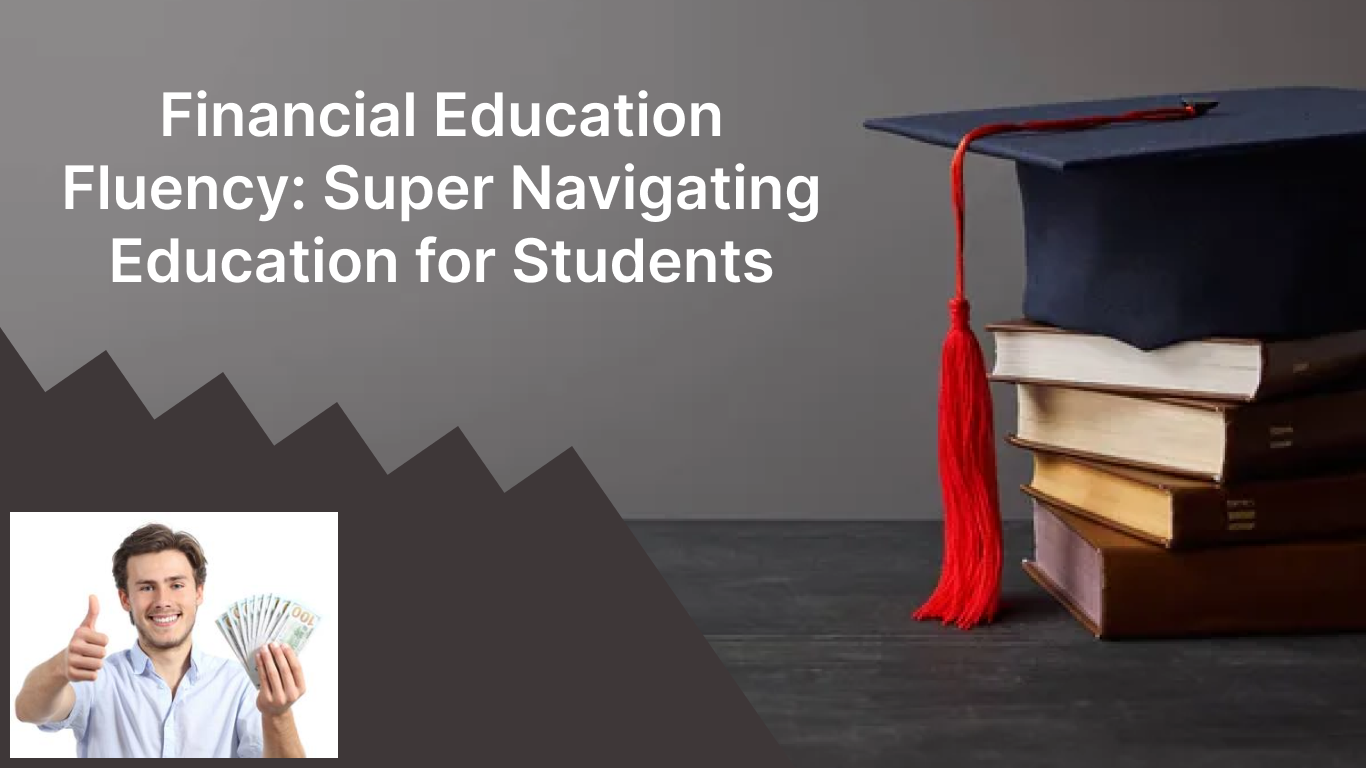Financial Education Fluency: Super Navigating Education for Students
In these days’s complicated world, monetary literacy isn’t always a luxurious; there may be a want.

Financial schooling equips students to make knowledgeable economic decisions, build a steady destiny, and navigate the ever-evolving world of wealth control.Financial Education Fluency: Super Navigating Education for Students. This weblog explores the importance of economic schooling for students and gives strategies to efficaciously include it.
Why is Financial Education Fluency important for students?
Economics Financial Education Fluency provides students with important life skills, helping them to:
- Have a responsive finances: They analyze to differentiate among wants and needs, prioritize spending, and now not fall into impulse buys.
- Understand the benefits of saving and investing: Financial literacy fosters a tradition of financial savings, allowing you to plan for destiny goals along with schooling, housing, and retirement.
- Managе Dеbt Rеsponsibly: Studеnts examine accountable credit score card usage, debt management techniques, and the importance of avoiding pointless debt.
- Make knowledgeable monetary selections: Understanding budgeting, investment products, and private economic philosophy lets in them to make smarter selections approximately their financial nicely-being.
- Build a Secure Future: By know-how the fundamentals of private finance, college students are better organized to navigate the monetary landscape, achieve their desires, and stay financially steady lives.

Supеr ways students get through economics:
1. Integration of economics into the curriculum:
- Add age-appropriate financial literacy modules to existing courses such as math, social studies, and finance.
- Promote interactive learning through simulations, case studies, and project-based learning activities.
2. Work with financial institutions and executives:
- Work with banks, credit unions, or Financial Education Fluency advisors to organize seminars and networking events for students.
- Invite economists to give good lectures or participate in classroom discussions.
3. Use of technology and internal resources:
- Use educational apps, games, and online resources that make Financial Education Fluency thinking playful and learning fun.
- Encourage the responsible use of online budgeting tools and financial calculators to understand real-world applications.
4. Foster open communication at home:
- Parents and guardians play an important role in financial literacy. Financial Education Fluency: Super Navigating Education for Students. Discuss financial matters openly, involve children in age-appropriate budgeting decisions, and encourage their questions.
- Lead by example and demonstrate responsible financial practices in your home.
5. Encourage peer learning and collaboration:
- Hold student-led discussions or workshops wherein students can percentage economic knowledge and enjoy with their friends.
- Create a safe and supportive surroundings in which university college students sense like they are each asking questions and excelling in their personal precise manner.

Frequently asked questions (FAQ).
1. What topics are appropriate in economics for different age groups?
- Essential: Focus on basic concepts like savings, spending, needs vs. wants, and understanding the value of money.
- Middlе School: Introducе budgеting, responsible lending, understanding credit cards, and basic financial concepts.
- High School: Develop your understanding of budgeting, responsible debt management, various financial products such as borrowing, investing in basics, and planning for college or a future career.
2. How can parents encourage their children to be financially stable?
- Lead by example and demonstrate responsible financial behavior.
- Make age-appropriate financial decisions by talking about finances, shopping plans, and the benefits of discretionary savings.
- Encourage them to set financial goals and track their progress toward them.
3. Where can I find Financial Education Fluency materials for students?
- Various authorities groups, non-income groups, and economic institutions are presenting only resources, curricula, and academic gear to educate monetary literacy.
- Explore on-line sources which includes video games, apps, and educational films that make studying a laugh and tasty for college students.
4. How do I advocate economic literacy be included within the school curriculum?
- Talk to school board members, teachers, and administrators to provide financial literacy instruction.
- Contact organizations that promote financial literacy and recommend its inclusion in the curriculum.
5. What are the benefits to the community of financially literate students?
- Financially literate students make informed financial decisions, creating a more financially secure community.
- This reduces the burden on social protection, promotes accountable economic conduct, and contributes to the monetary nicely-being of society as a whole.
By the use of these support techniques and facilitating monetary literacy. Financial Education Fluency: Super Navigating Education for Students. we are able to empower students to navigate the financial global with self assurance, make informed selections, and create a secure and satisfied future for themselves.
Remember that monetary literacy is a lifelong journey, and starting early offers people the understanding and abilities to build a stable financial basis for future years.
Read more blogs click here!
